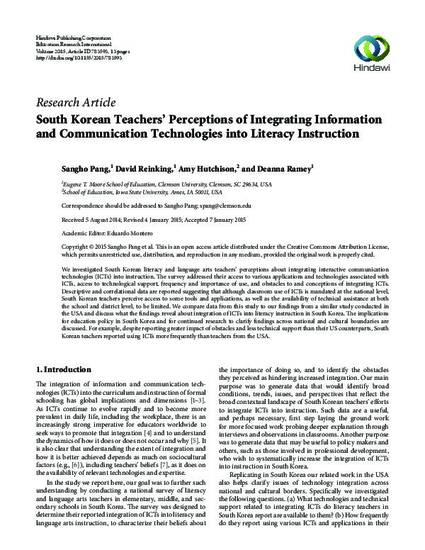
We investigated South Korean literacy and language arts teachers’ perceptions about integrating interactive communication technologies (ICTs) into instruction. The survey addressed their access to various applications and technologies associated with ICTs, access to technological support, frequency and importance of use, and obstacles to and conceptions of integrating ICTs. Descriptive and correlational data are reported suggesting that although classroom use of ICTs is mandated at the national level, South Korean teachers perceive access to some tools and applications, as well as the availability of technical assistance at both the school and district level, to be limited. We compare data from this study to our findings from a similar study conducted in the USA and discuss what the findings reveal about integration of ICTs into literacy instruction in South Korea. The implications for education policy in South Korea and for continued research to clarify findings across national and cultural boundaries are discussed. For example, despite reporting greater impact of obstacles and less technical support than their US counterparts, South Korean teachers reported using ICTs more frequently than teachers from the USA.

This is an open access article distributed under the Creative Commons Attribution License, which permits unrestricted use, distribution, and reproduction in any medium, provided the original work is properly cited.